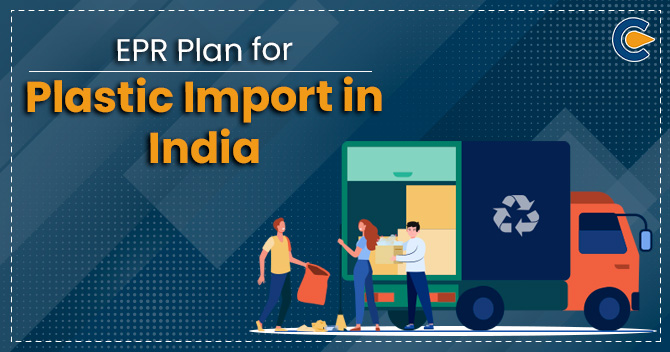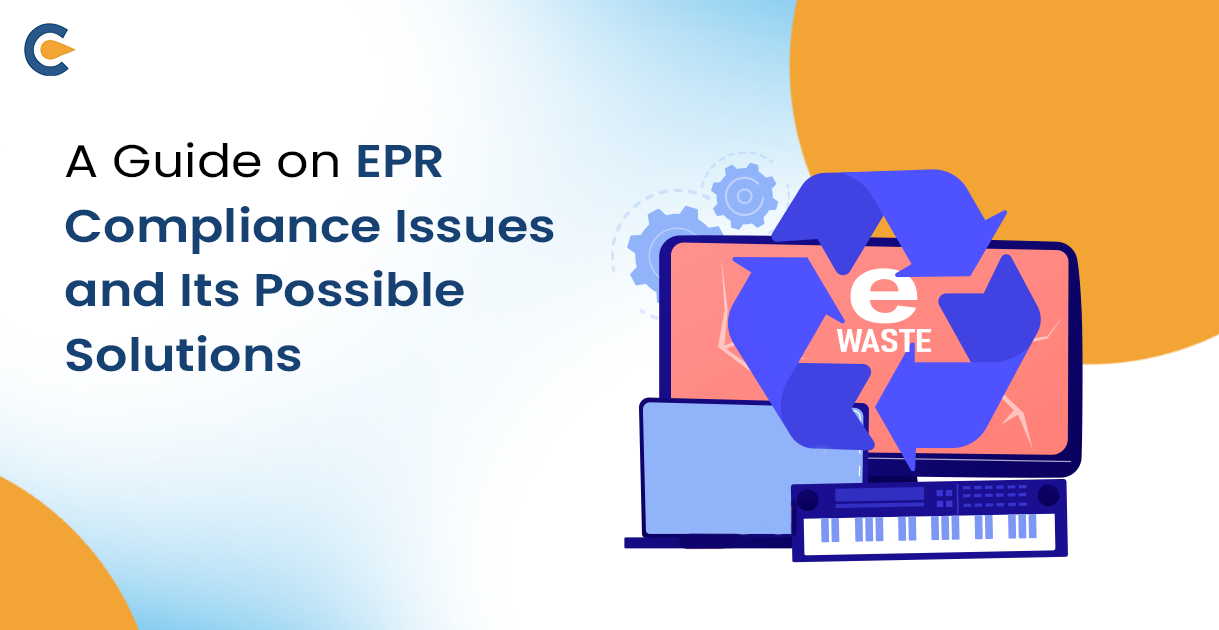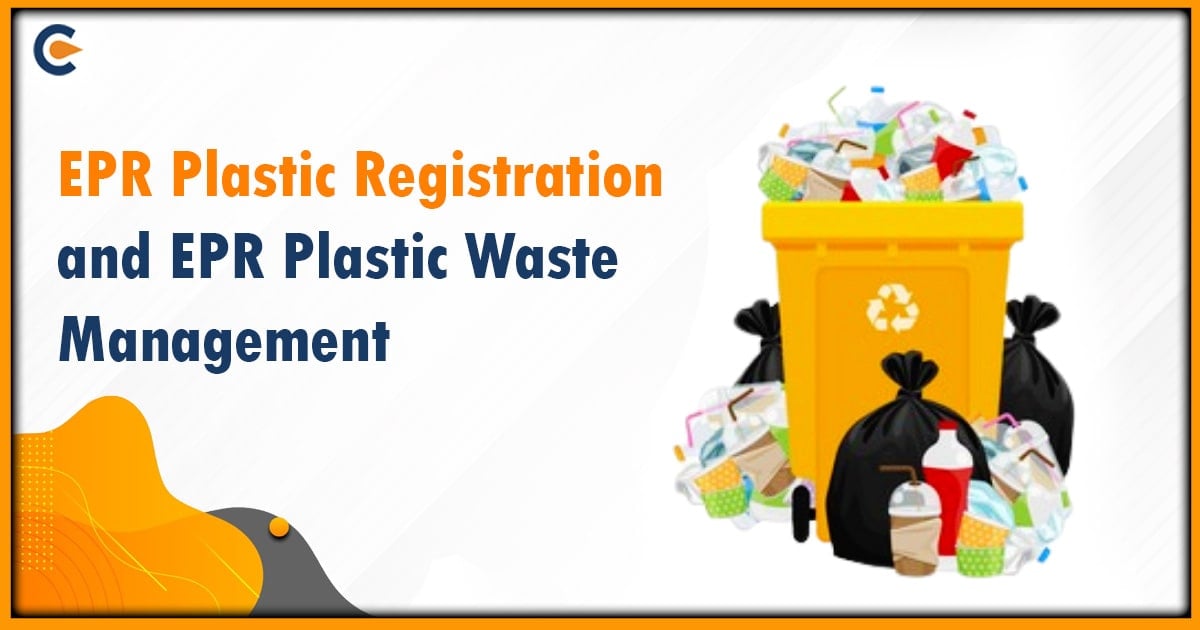When in 2019, The Ministry of Environment, Forest and Climate Change under the Indian Government posed a nationwide ban on the Import of plastic bottles or PET (Polyethylene Terephthalate) Bottles, it was reported that many recycling or waste processing Companies were facing economic loss due to less waste available to them despite industrial data indicating that more than 14 lakh tonnes of PET plastic are consumed annually in India, and even with a global highest 80% recycling rate, approx. 2.8 lakh tonnes of plastic bottles waste never gets collected.Therefore, to amend this situation, the Ministry of Environment, Forest and Climate change lifted the ban in 2022, recommending that firms with an application for permission could import Polyethylene Terephthalate Flakes/Bottles up to 50% of their production capacity. But as indicated, the Importers have to acquire EPR Plan for plastic in order to Import plastic waste.
Plastic Import in India
Before the ban on plastic, the companies in India were importing plastic from Italy, China, Malwi and Japan with the import rates of 12,000 tonnes in FY16-17, which increased at the rate of 290% in Financial Year 2017-2018 up to 48,000 tonnes.
After seeing this much increase in the import rates in 1 year, The Ministry of Environment, Forest and Climate Change posed a ban on the Import of plastic, taking a step towards promotion of management of locally generated waste. Ban was followed by an increase in illegal Import of plastic in India, which increased the waste that was not adequately regulated or managed and a massive loss to the recycling/managing plants due to lack of waste for them to recycle.
It was reported that in 2021 around seven companies filed an application for the Import of 93,000 tonnes of plastic waste from countries like Germany, Canada and America. After this application and concern from many other industries, the Import of plastic having 50% recycling capacity was allowed to be imported up to 90,000 tonnes.
EPR Plan for Plastic
One of the most researched and studied principles is related to environmental studies is Extended Producers’ Responsibility which was introduced in 1990 by Sweden researcher Thomas Lindhqvist in his Models of Extended Producers’ Responsibility[1], where the EPR plan was described as a shift in a burden of Responsibility of the Government or state to the producers or manufacturer for waste management. Following this, the EPR was used worldwide, among which Germany was the first to implement it in 1991. Now Extended Producers’ Responsibility is defined as an environmental policy approach in which extended producer’s Responsibility for a product is extended to the post-consumer stage of the product’s life cycle. Under which EPR, Responsibility is said to build on three principles those are “life cycle thinking”, “Polluter pay principle”, and “Pollution prevention approach”.
Extended Producers’ Responsibility puts liability on the Producers’/Manufacturers or importers until the manufacturing cycle and makes them responsible for environmentally sound management of packaging and End-of-life products.
In India, Extended Producers’ Responsibility in regards to plastic waste management is fairly new and introduced under Plastic Waste Management Rules, 2016. Extended Producers’ Responsibility is regulated by the Central Pollution Control Board and State Pollution Control Board, defined as the “responsibility of a producer for the environmentally sound management of the product until the end of its life”. In contrast, Importers are defined as “a person who imports or intends to import and holds an Importer –Exporter Code number, unless otherwise specifically exempted”.
Role of Extended Producers’ Responsibility:-
- Relieving local bodies/gram panchayats/ Nagar Palika from some of the financial burdens.
- Push producers’ to design and manufacture more sustainable products.
- Promoting waste management and recycling sector
- Counting in and including the informal sector in waste management
EPR plan format as per Central Pollution Control Board bringing consistency as well as discourse clarity from businesses. EPR plan is the supporting document submitted while filing the document
Drafting the Action Plan: The action plan document describes the overview of how a manufacturer/Producers’ want to conduct EPR as well as how they plan to implement and monitor the activity. After registration, manufacturer are expected to follow the action plan to conduct EPR. The government has also laid down the guidelines on the document format which are available on Pollution Control Board official site.
Authorisation of Action Plan: Company with operations in one or two state, it must approach respective state authorities to get the action plan acceptable and submit to the State Pollution Control Board. A company having operation is more than two states has a single layer process for authorisation and submission which happens at the CPCB.
The registration process for EPR for Plastic Import in India
As stipulated under the Plastic Waste (Management) Rules, 2016, EPR for Plastic Waste is delegated PIBOs (Producers’/Importers and Brand Owners). This liability on the Importers is to be fulfilled by establishing a system for management while engaging with local bodies. Apart from this, it is also stipulated that Producers’/Importers and Brand Owners who work in more than two states are directed to acquire registration from Central Pollution Control Board, whereas Producers’/Importers and Brand Owners who are only operating in one or two states are required to obtain registration from State Pollution Control Board.
- The registration for Plastic Waste management rules can be applied online through the official site of the Central Pollution Control Board/State Pollution Control Board.
- Importers to register in order to acquire an EPR for plastic by filling Form-I Part A, which will include the general information including the Name of the Organisation, Address, Name and designation of the person authorized, Contact details of the Authorized person, Total Production Capacity etc.
- While submitting the application, the Importers also have to keep in mind the payment of Application fees as stipulated by Central Pollution Control Board.
- Along with the Application, importers also have to submit the required documents.
- EPR Action Plan to meet the state-wide EPR target has to be submitted for each of the states/UT in which the PIBO is introducing the plastic into the market
| Category | Year | EPR Target (as a percentage of Q-Category-wise) |
| I | 2022-23 | 25% |
| II | 2022-23 | 70% |
| III | 2023-24 | 100% |
- After the application is submitted to either Central Pollution Control Board or State Pollution Control Board, it is examined and reviewed within seven working days of the receipt of the application.
- Then in case of a shortcoming, CPCB sends the application back to the applicant to which he has to respond within thirty days; if no information is received by CPCB within the stipulated time, then the application will be considered withdrawn.
- The EPR Plan for the plastic certificate will be presumed to have been generated if there is no response from the Central Pollution Control Board within one month of receiving the application with all the required documents.
Documents submitted while filling Application Form
(a) Proof of Selling in more than two states (GST/ tax invoice etc.)
(b) Documents related to Action Plan for fulfilling EPR liability (State/UT wise)
- If applicable, Document issued by ULB / designated state authority related to engagement of PIBO/WMA.
- Registration issued by SPCBs/PCCs to PWPF to be engaged with for PW processing
- If applicable, Agreement of PIBO/WMA with PWPF for PW processing.
- If applicable Agreement of PIBO with WMA
(c) DIC Certificate, if the unit has a production facility
(d) Valid Consents under Air & Water Act, if the unit has a production facility
Validity of Grant of Registration
First-time registration for EPR Plan for plastic will be valid for one year as per the stipulated guidelines under Plastic Waste management rules. At the same time, any following registration will be valid for three years.
After registration, the importers are also responsible for submitting half-yearly progress reports and yearly Progress reports.
Renewal of Registration
Producers’/Importers and Brand Owners, for the renewal of the application, have to submit the application four months before the registration expires. Documents to be submitted for renewal are:-
- Copy of original registration certificate.’
- The renewal should be based on the compliance status received from the state pollution control board.
- Filled in application format
- EPR Action Plan
Conclusion
Registration for EPR Plan for plastic not only helps in effective waste management by giving importers Cost effective waste management system but also helps in recognition and setting up a positive image in the market, especially at times when plastic waste recycling is the new emerging topic in India with the plastic industry aiming to achieve an annual turnover of Rs. 10 trillion in five years.
Read our Article:EPR Action Plan for Plastic Waste: Explained











